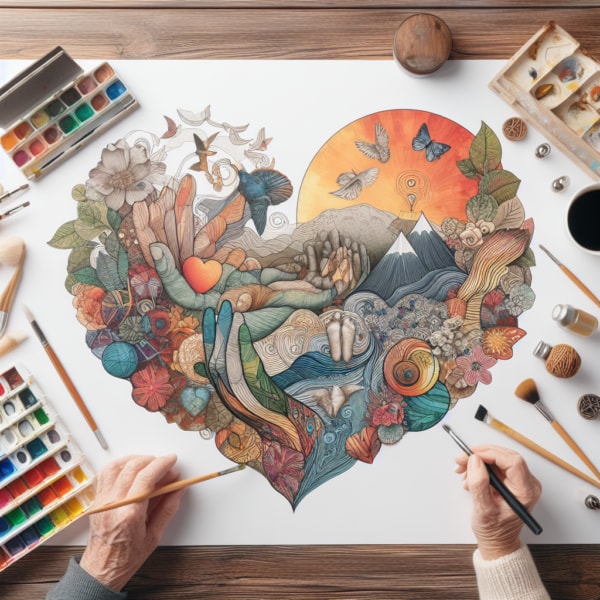When Words Fade, Creativity Speaks
There is a quiet grief that many families carry—the slow sense of losing someone they deeply love to dementia or Alzheimer's disease. Words fade. Recognition slips. But in the gentle space of art therapy, something remarkable happens.
Connection Beyond Words
Art provides a bridge when verbal communication becomes difficult. A brush touching paper, a familiar color chosen—these moments create genuine connection.
Preserved Abilities
While memory fades, creativity, emotion, and the capacity for beauty often remain intact. Art therapy honors and engages these preserved abilities.
Dignity and Purpose
Creating art provides a sense of accomplishment and purpose, reinforcing dignity and self-worth throughout the disease journey.

